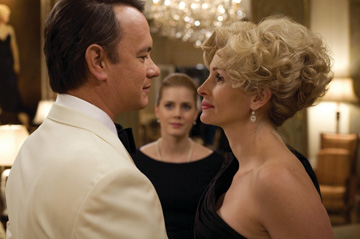Charlie Wilson’s War
Warming up the Cold War
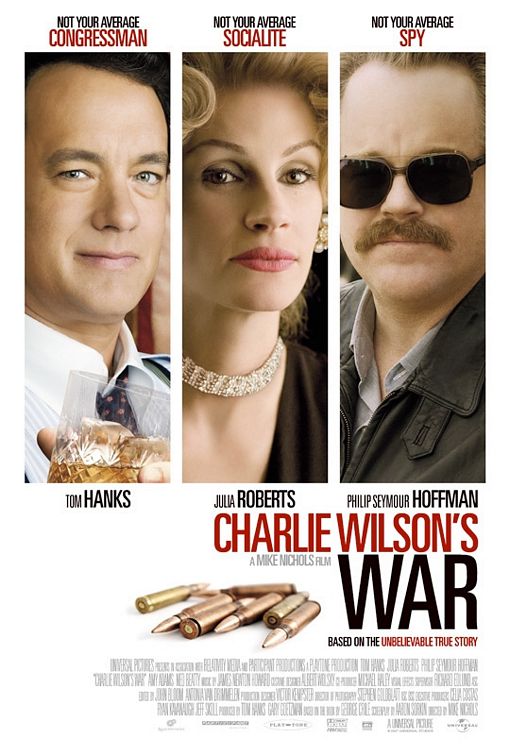
It is odd these intense discussions about historical events that occurred centuries ago, when recent events, from two or three decades ago, often remain intentionally forgotten. It is about some of these facts, which contributed to the end of the Cold War, that deals with the movie “Charlie Wilson’s War” (USA, 2007), starring Tom Hanks and Julia Roberts.
I believe that for many people the Cold War is a vague concept, something involving the United States and the former Soviet Union. In fact, the Cold War was a state of political-ideological conflict between the United States, defenders of capitalism, and the Soviet Union, defender of socialism, which lasted from the end of World War II (1945) until the dissolution of the soviet bloc in 1991.
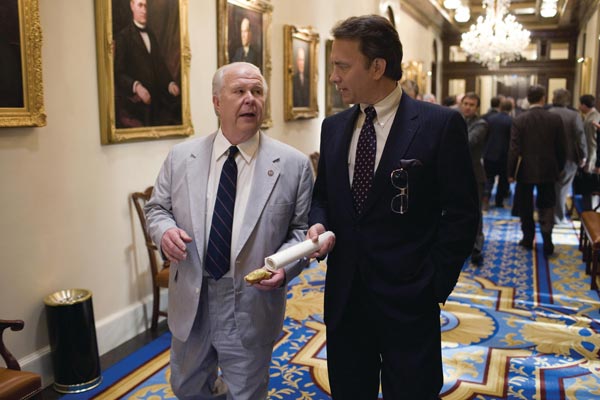
The term “cold” is due to the fact that there was never a direct confrontation between the two superpowers, although whenever there was the direct participation of one in a conflict, the other acted supporting the opposition. It was like that in the Korea, in Vietnam, and many other minor conflicts, until the Soviet Union invaded Afghanistan in the end of 1979. At that time, United States, still under Jimmy Carter’s administration, was divided between the defense of human rights and the hostage crisis of Ayatollah Khomeini’s Iranian revolution.
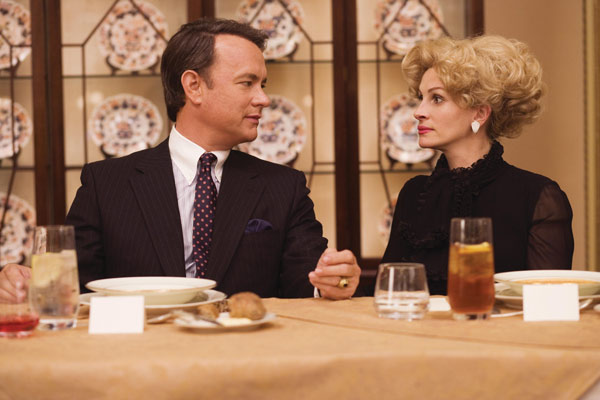
It is this period that the movie focuses, through the person of Charlie Wilson (Tom Hanks), a congressman of the state of Texas. Presented as a politician whose biggest achievement in six terms was to be re-elected five times, he seemed to see his job only as a way to live comfortably, with access to many parties, women, drinks and cocaine, not necessarily in that order.
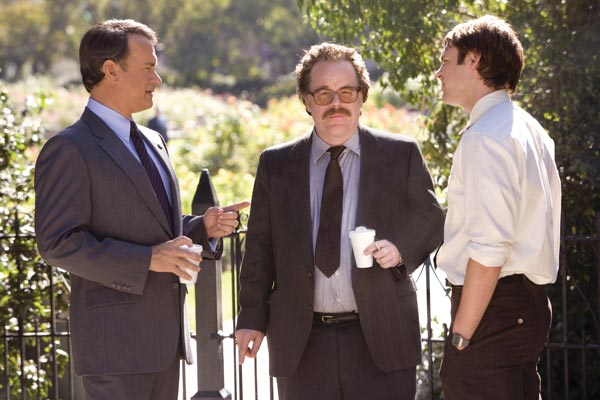
With the attention sparked by a report on Afghan refugees, Wilson decides to double the CIA budget for operations in Afghanistan. He is surprised to learn that the value at the time was only five million dollars. Even if doubled, that would be not enough for some more serious action. When a socialite friend from his state, Joanne Herring (Julia Roberts), convinces him to go to Pakistan, he realizes the gravity of the Soviet occupation and decides to go deeper into the idea to help the Afghan resistance.
The problem is that, still under the apathetic influence of Carter, very concerned with human rights, nobody in the American administration wanted to get involved in a fight against Soviet Union. The support Wilson hoped for came through an obscure CIA agent, Gust Avrakotos (Philip Seymour Hoffman).
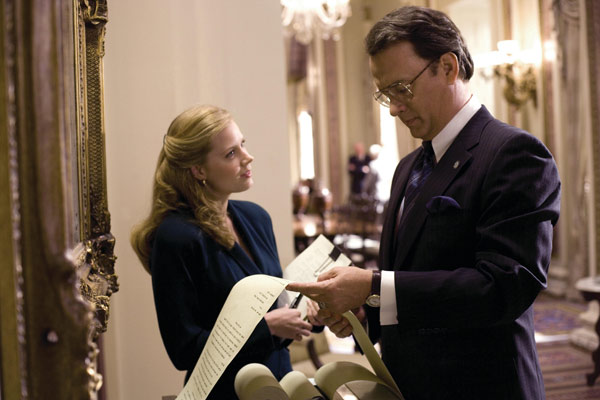
Wilson made an unusual combination of opposing forces, achieving an Israeli dealer to buy Soviet weapons from Egypt, with money coming from Saudi Arabia to be smuggled via Pakistan. The detail is that all these countries lived in a state of almost permanent war.
“Pakistan and Afghanistan do not recognize our right to exist, we have just emerged from a war with Egypt and all those who have tried to kill me or kill my family have been trained in Saudi Arabia,” says the Israeli. “Not all of them”, replies Avrakotos, “some were trained by CIA.”
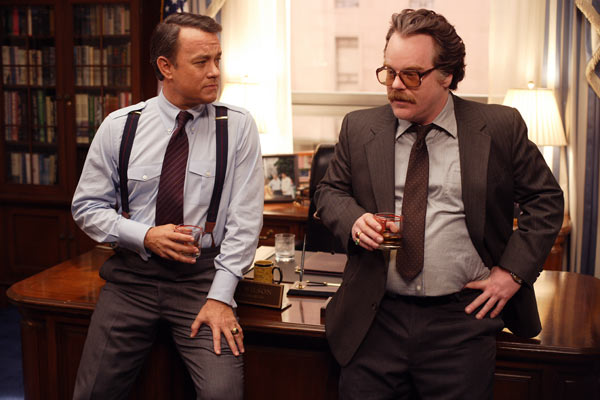
Having managed to increase the initial five million budget, Wilson convinced Congress to allocate one billion dollars annually to purchase sophisticated weapons and equipment for Afghan rebels, who would be trained by CIA agents. Obviously, none of these details could be officially known by the world, since it would be moving from the level of a influence war to an open conflict between the superpowers – that is, a nuclear war with unpredictable consequences.
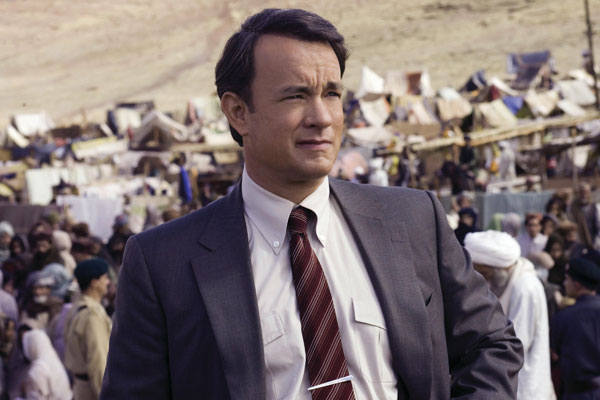
With a surprising rhythm dictated by the great editing and dialogues that look like machine-gun bursts, a trademark of screenwriter Aaron Sorkin, the movie manages to stay on the threshold of drama and comedy, without demagogies or false moralism, showing how ordinary people can achieve extraordinary feats. It is quite true that Wilson’s darkest traits, such as the use of drugs and binge drinking, are shown much more lightly than they were in reality. Nothing, however, that takes away the value of the film.
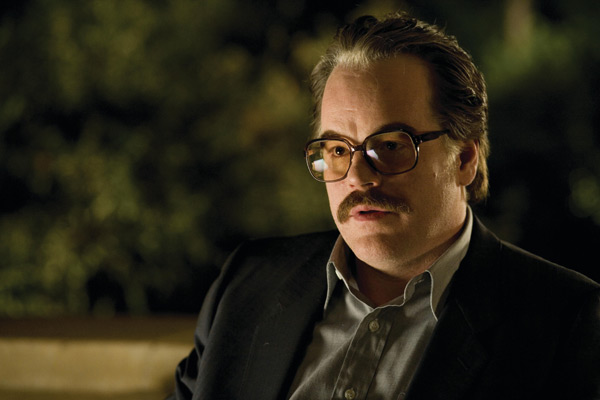
On the other hand, Philip Seymour Hoffman’s performance as the cynical CIA analyst is exceptional, and I am adamant in saying that the loss of the Oscar to Javier Bardem was unfair, who although a great actor, did nothing more than a face of paralyzed mummy in “No Country for Old Men” (USA, 2007).
The most interesting thing about “Charlie Wilson’s War” is the message, subtle pero no mucho, of the eternally disastrous American foreign policy, which is capable of giving a billion dollars to burn in a veiled operation, and denying a million to build a school. We cannot forget that it was the Americans themselves who practically created all possible conditions for the radical Taliban regime to come to power in Afghanistan. Among the men trained to fight the Soviets was Bin Laden, who a few years later would successfully carry out the 9/11 attack.
And for those who like these details, the film is based on the book “Charlie Wilson’s War the Extraordinary Story of How the Wildest Man in Congress and a Rogue CIA Agent Changed the History of Our Times”, written by George Crile.

